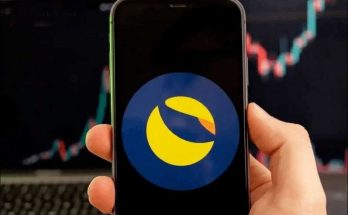Ripple, one of the most important companies in the cryptocurrency industry, stated last week that a lawsuit will be filed against the company by the Securities and Exchange Commission (SEC) for the sale of unlicensed securities.
Ripple CEO Brad Garlinghouse and co-founder Chris Larsen are also cited as defendants in the lawsuit. The SEC filed the lawsuit, alleging that the company and its executives sold $1.3 billion in unregistered securities.
There has been an ongoing debate between the commission and the company for years whether XRP is a security like a stock or whether it is a currency and falls outside the jurisdiction of the commission.
Ripple’s decision to announce that the lawsuit is about to be filed is an unusual one. Garlinghouse predicted that the new Biden administration might be friendlier to the cryptocurrency industry than the Trump administration, so the company’s announcement may be a political reference.
Garlinghouse also criticized the SEC’s decision to sue just before the holidays, stating that Ripple will fight the case to the end. Garlinghouse said the situation was not only depressing, but shocking as well. He stated that the lawsuit goes against the entire cryptocurrency industry and American innovation.
Securities or not?
In recent years, the SEC has decided that the two most valuable (by market cap) cryptocurrencies, Bitcoin and Ethereum, are not securities and have a decentralized structure because no individual or company controls them.
XRP differs from Bitcoin and Ethereum because BTC and ETH are minted in a gradual and continuous process called mining. In contrast, Larsen and his partners created 100 billion XRP units at once in 2012 on behalf of a company called Ripple Labs. While Ripple continues to own the lion’s share of XRP, it keeps some of this share to be sold at certain time intervals. At the same time, Garlinghouse and Larsen also hold significant amounts of XRP. This has led some unbiased observers to liken XRP to a company’s stock more than a currency.
Ripple, on the other hand, has denied the claim that XRP is a security throughout this entire process. According to Ripple’s claim, the XRP offering to be made at certain times is not at the company’s discretion. Also, XRP is used by many banks for the conversion and transfer of currencies, making XRP increasingly decentralized. According to Garlinghouse, the relationship between Ripple and XRP is exactly the same as the relationship between oil and Exxon.
It looks like the situation will eventually be settled by the judiciary, and the outcome will closely affect the growing cryptocurrency industry. The SEC recently won a lawsuit against the messaging app called Kik. Kik used to distribute cryptocurrencies to its users. The judiciary had ruled that the distributed tokens were unlicensed securities. However, the situation in the Kik case differs from that of XRP.
Kik sold the tokens to investors in 2017, despite all the warnings from the SEC when the crypto market was in vogue. On the other hand, Ripple created its business model and started operation 8 years ago, when there was no guidance and directive regarding cryptocurrencies.
This situation raises questions about the direction of the case. The focus of the Ripple CEO’s criticism is the timing of the decision to file a lawsuit. He says that SEC chairman Jay Clayton increased uncertainty by doing this job just at the time of the presidential handover, and his goal is to shake confidence in cryptocurrencies as much as possible.
XRP is not a security in Switzerland and Japan and is the largest US-based cryptocurrency.
Visits: 85




